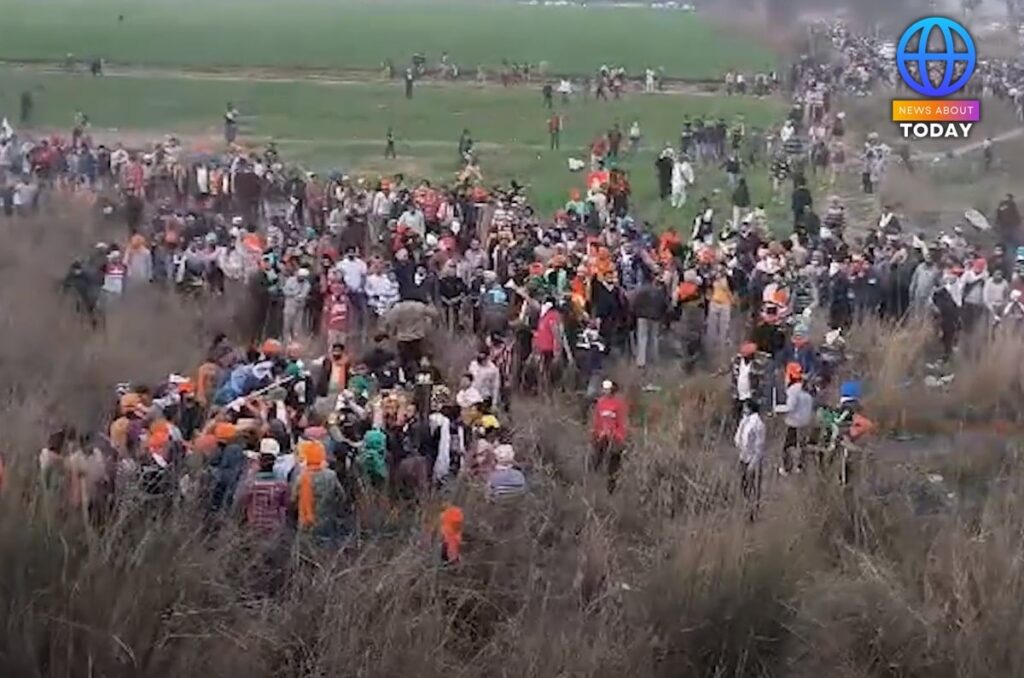
The Reason behing Farmers Face Tear Gas and Rubber Bullets
Rising Tensions at Shambhu Border: Indian Farmers Face Tear Gas and Rubber Bullets Trying to Resume March to India Capital, Through a brave manifestation of their stand, the farmers from different parts of India are now using tear gas and rubber bullets as a protective gear as they are determined to carry on the march to New Delhi to gain the stated demands of minimum crop prices, debt relief, and policy reforms. They have been conveyed for more than 250 days by around 250 farmers unions including related groups like the Kisan Mazdoor Sangharsh Committee and the Samyukta Kisan Morcha. Indeed, the repeated protests attest to the difficulties faced by peasant farmers amid the preceding actions.
Two-Year-Old Grievances Reignite
Current protests are an ongoing outcome of the other demonstrations that took place more than two years ago with violent policemen and the death of more than 600 protesters. There is now acknowledgment that the said bills were an apparent retracting of policy intentions, allowing many demands to remain unanswered, for instance, the need to implement a comprehensive MSP system, debt relief, and a defense against the privatization of the power industry.
Battling Barricades and Government Resistance
When farmers endeavor toward the walls of New Delhi with tractors and trucks, some blood shed obstacles presented by Indian police, such as barriers, nails, and heavy machinery along the roadway will be encountered by the protesters. The Harchandpur police force, subscribing to the BJP ruling party, resorted to rounds of tear gas when trying to demolish the barricades at the village of Shambhu, on the Punjab – Haryana border, and the existing tensions were further worsened.
Undeterred Farmers and Unyielding Government
Farmers who are not scared by tear gas or rubber bullets, together with their similar demands, emphasize what kind promises does the Government bring that bear no fruit. “It is up to the the present government to deliver what they promised, and why would the government that comes after that solve our problems?” –said a farmer from Bathinda, Punjab, Sukvindra Kaur. Thus, the protests point out the importance of farmers in the upcoming elections to get the ruling party, that is the Bharatiya Janata Party slapped by the voters.
Clash of Perspectives on Democracy
In the heat of the battles, hurled sounds of disapproval from the agricultural society on the way the troops are using excessive force like the firing of teargas and rubber bullets as undemocratic. Dharam Singh Sidhu representing the vice president of Farmers organization at Kissan Sangsh Samiti for Ferozepur, Punjab talked about the value of Non Violent protests in a democracy and slammed the authorities for turning in and shelling farmers who were just demanding their rights peacefully.
A Complex Tapestry of Farmer Grievances
Compelling the farmers to the farmer groups has been achieved both by the guarantee of minimum support price and the relief of the debt besides the protection from the market fluctuations and the opposition to the growth of the power industries through the private ownership. The multi-dimension of these problems evolves together with broader socio-political context, which now becomes the defining force behind the sparking of protests that are just around the corner.
To end, the constant clashes among the protesters and the authorities at the Shambhu border is a clear evidence of a multi-layer issue that involves a list of not fulfilled promises and the determination of the Indian farmers to safeguard their rights. Pervading the space with dense tear gas, while the rubber bullets fly, the confrontation worsens and gives birth to a tough nut to crack for the government, all while the trumpet call for justice becomes ever stronger and ever more resounding, taking its toll on the Indian drastic crop sector reform movement.